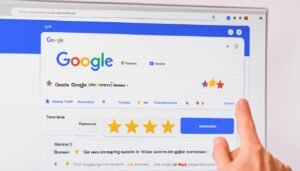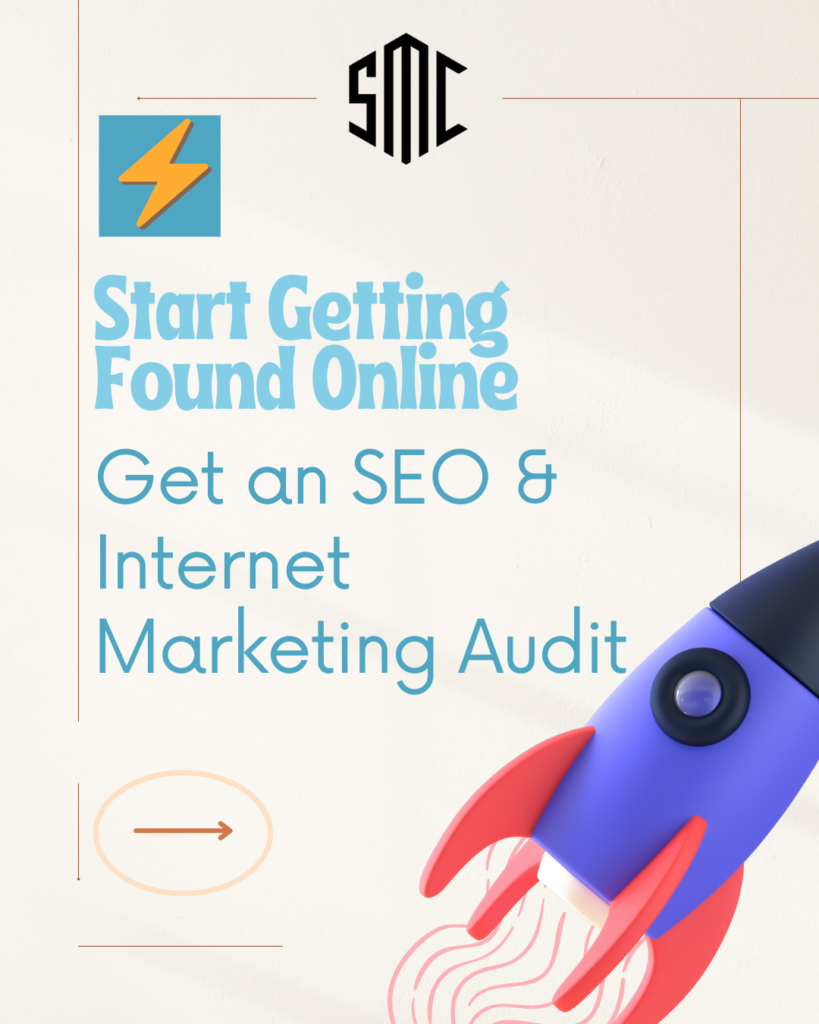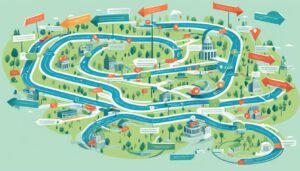Marketing is changing fast due to artificial intelligence (AI). It’s now a big part of marketing, creating new solutions and changing old ways. As technology grows, AI’s role in marketing will only get bigger1.
Recently, 73% of marketing pros started using AI to make various content. This content includes emails, social media posts, and chatbots. AI helps marketing work better, making it faster and cheaper to create content2.
AI is quickly becoming a norm in marketing, with 80% of U.S. businesses already using it. Another 15% plan to add AI to their marketing this year3. AI’s impact is huge, letting businesses predict markets and customer needs very accurately, up to 95%. This accuracy can help them stay ahead in marketing3.
Key Takeaways
- 73% of marketing professionals are already using generative AI to create content like email, social media, and chatbots.
- AI can enhance marketing performance, streamline creative processes, reduce costs, and accelerate content creation.
- 80% of American businesses are already using AI in their marketing, with an additional 15% adopting it this year.
- AI can predict market events and consumer behavior with up to 95% accuracy, optimizing marketing strategies.
- AI is augmenting marketing teams, making them more efficient, while still requiring human strategic direction, quality control, and brand protection.
The Rise of AI in Marketing
Artificial Intelligence (AI) is making big changes in marketing. It’s providing new solutions, changing old ways of doing things. About 90% of marketers feel they need to use more AI to keep up and make customers happy4. As technology grows, AI will shape marketing’s future greatly.
Generative AI is changing how we make marketing stuff. It’s getting easier to access and use. For example, tools like ChatGPT can create lots of different things quickly, like emails or ads. With AI, marketing teams can check over 50,000 customer messages every second, and 600 million every day4. This gives insights that improve marketing very fast, much quicker than with old methods.
The marketing world is about to change a lot. Marketers need to know about and welcome these new technologies to compete well. By 2025, teams using AI will use most of their time on smart tasks instead of creating stuff4. This means AI-driven marketing will be very fast with reacting to changes and dealing with problems.
Industry Research on AI Adoption
The use of AI in marketing is increasing rapidly, according to recent studies. For example, a survey by Botco.ai, a leader in generative AI chat communication, asked 1,000 marketing pros how they use AI. The findings showed that a big 73% were already employing AI to make content like text, images, and videos5. B2B companies were leading at 78%, followed by B2C companies at 65%5. The research highlights the common use of AI in marketing today and urges marketers to grasp these technologies to keep up.
Additionally, a report by CompTIA paints a similar picture of AI’s popularity. It states that 22% of companies are pushing hard to use AI everywhere, and another 33% are slowly starting6. Yet, many companies, about 45%, are still figuring out how to start using AI, which shows more growth is coming6. This study also noted that AI is widely employed for bettering business operations (56%) and for improving cybersecurity and fighting fraud (51%)6.
The trend of more AI in marketing has been fueled by the Great Resignation, making businesses rely on AI tools more. Unbounce’s report found that around 60% of smaller companies are short on employees with needed marketing knowledge. About 49% struggle to hire and keep marketing talent7. This situation has led one-third of these companies to start using AI in marketing. Over 60% of them are looking to add more AI tools in the future7.
The research highlights both the growing use and future potential of AI in marketing. Marketers who arm themselves with AI knowledge and tools stand a better chance at keeping their competitive advantage.
Content Creation with Generative AI
The marketing world is changing fast thanks to artificial intelligence (AI). Marketers are using AI to make their work easier and their content better8.
Recent research shows that more marketing teams are using AI. A study by MIT Technology Review found that by 2022, only 5% saw it as critical. But by 2025, 20% are expected to use it a lot. Also, 41% of marketing groups were using AI by 2023, showing its growing importance8.
There are many benefits to using AI in marketing. It helps save time and makes messages more personal and relevant. In a 2023 survey by Salesforce, over half of marketers were already using AI. Another 22% planned to start using it within the year8.
Marketers use AI for many things like writing emails, creating social media posts, or making chatbots8. In a 2023 survey from Boston Consulting Group, 67% of marketing leaders wanted to use AI for personalized marketing. And 73% of all marketing pros were using AI in some way, according to Statista8.
The use of AI in marketing keeps growing. Marketers need to keep up with its changes and benefits8. AI can help make marketing more efficient and engaging for customers. It leads to better marketing results8.
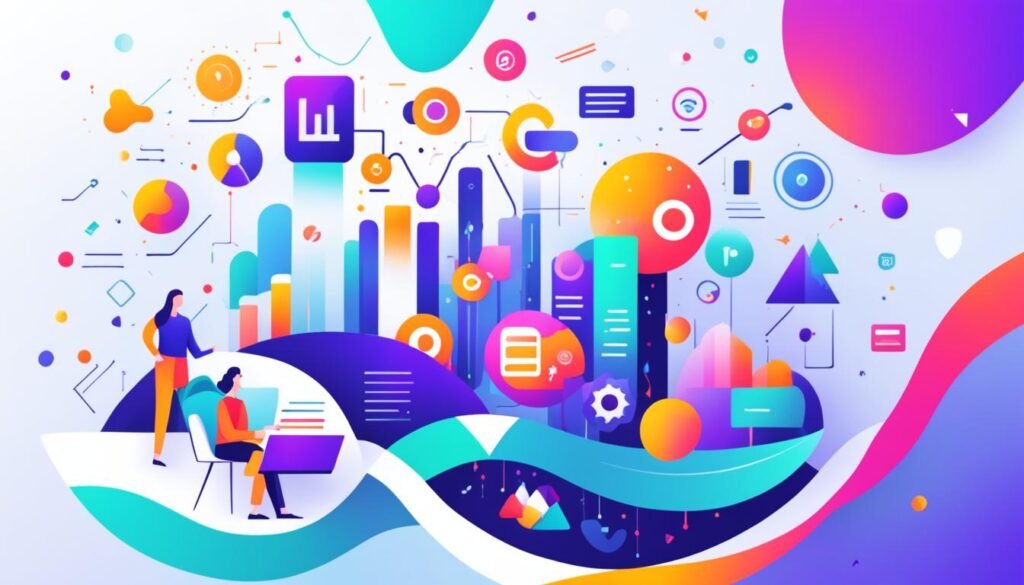
Though AI in marketing has big potential, it must be used thoughtfully8. Marketers must think about ethics, biases, and protecting user data. These are important as they use AI in their strategies8.
AI In Marketing Examples
The marketing world is changing fast. Artificial intelligence (AI) is now key in making marketing better. It’s used in creating content, finding the right customers, and making messages personal. With AI, marketers are achieving amazing goals9.
Cyber Inc., for instance, made videos twice as fast with AI. They entered new markets sooner and saved a lot of money and time9. Cosabella also thrived with AI. Their search and social media results went up by 50%. And, they spent 12% less on ads thanks to AI9.
In the car world, Volkswagen boosted sales by 20% with AI help. They also cut hidden costs. How? By predicting customer choices better when buying ads9. Tomorrow Sleep discovered that using AI to create content grew their website traffic from 4K to 400K a month in just one year9.
Netflix is a great example of AI personalization. Their AI-powered suggestions app is worth over $1 billion a year9. JP Morgan Chase saw their ads get more clicks, with a 450% jump, thanks to AI-generated messages from Persado9.
Email marketing has also felt AI’s impact. FARFETCH improved their click rate by 38% and their open rate by 31% with AI email marketing9. In the online payments world, AI analysis from Crayon helped Mastercard Gateway do better against rivals9.
All these examples show how AI is changing marketing in many ways. These changes range from making ads better to understanding rivals more effectively. AI-powered tools are shaping the marketing future, driving great outcomes for businesses10.
AI is more than just a fad. It is a big change in how marketing works. This change is ongoing and getting better all the time. Marketers who use AI well are set to lead and win in the future11.
Generative AI Tools and Technologies
The marketing world is changing fast with generative AI. Marketers are using AI in marketing more often. They’re exploring generative AI tools for things like AI content marketing. Doing this helps them boost how well they target their audience and be more creative.
Research shows ChatGPT, Copy.ai, Jasper.ai, and others are top choices for marketers. These tools help in many areas, from writing to creating images and videos. Their popularity is growing, showing they are making a real difference.
Harnessing the Power of Generative AI
Marketers see the value in using generative AI to make their work flow better. Tools like Jasper AI have become favorite for many, with lots of positive feedback. They make writing copy much easier, helping over 350,000 users.
Tools like Notion AI also make a big change. They use AI to help with organization and getting tasks done. Offering unique features and costing from $8 to $10 a month per member. Content at Scale is another useful AI, making SEO blog posts that sound human written. It meets high quality standards and is 70% authentic to AI detectors.
There are tools like Originality AI to check if the content is original. They help make sure AI-generated work is unique and high-quality. Writer.com is great for teams working together on content. It has tools like autocorrect and grammar checks to make writing as a team easier.
The marketing field is changing because of AI. It’s making marketing smarter, more efficient, and personal for everyone involved. In the future, using AI in marketing, generative tools, and content creation will be key. They will help bring new ideas, make work easier, and connect businesses better with their customers121314..
Embracing AI in Marketing
As the marketing world changes fast, artificial intelligence (AI) becomes more real every day. The AI market could hit $500 billion in 202315. Already, over half of companies are using AI like chatbots in their strategies15.
Tools such as ChatGPT are changing how we create content and connect with customers. More successful companies use AI in marketing, showing its value15.
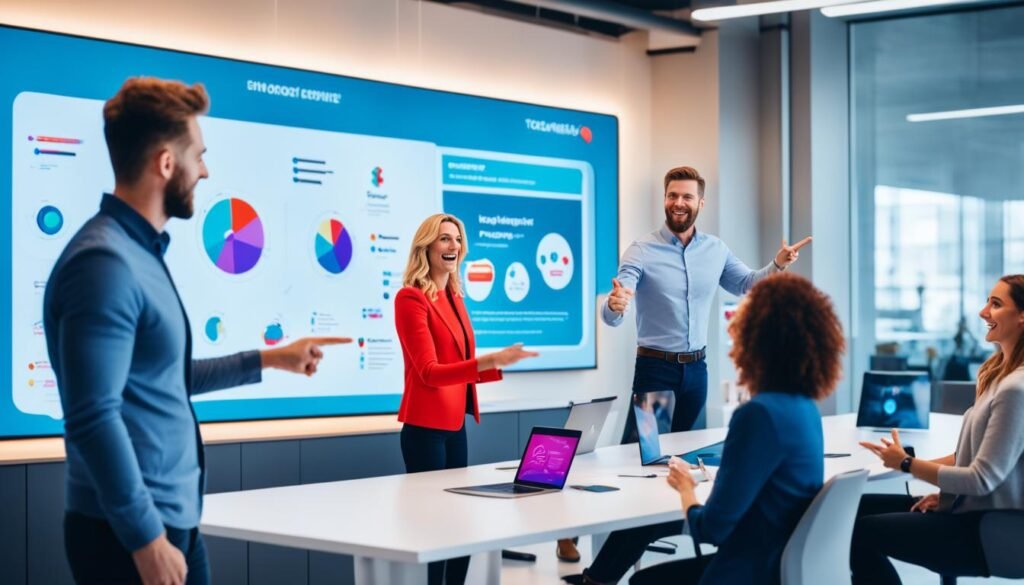
Some might feel unsure about AI, but its benefits are clear. For example, 31% of marketers say AI is great for understanding customers15. About a quarter of customer service companies use AI chatbots15.
Many millennials have already interacted with chatbots. And businesses using chatbots see more quality leads. AI brings huge chances for better customer experiences and smarter marketing15.
Choosing AI in marketing is not just a choice; it’s needed for success. Companies diving into AI now will lead the pack in the future16. Without AI, rivals might get ahead, affecting both performance and profits17.
The future of marketing relies heavily on AI. Embracing it means better understanding customers, improving campaigns, and creating better content16. It’s a chance to use AI to boost our marketing efforts17.
AI’s Impact on Marketing Teams
AI is changing the game for marketing teams. Its impact is clear as day. AI social media marketing and AI influencer marketing boosts what marketing pros can do, without replacing them18. AI helps by taking on tasks like making content, personalizing, and optimizing campaigns. Yet, real people are still key for big strategies, quality checks, and protecting a brand18. AI is a tool, and should be used as such.
This change is big for marketing teams, making them better and faster19. Thanks to AI, marketers can do tasks quicker, aim their efforts better, and see a better return on investment19. For instance, they use AI for new content ideas, making video scripts, and creating visuals, such as with ChatGPT, Synthesia, and Midjourney18.
But, using AI in marketing isn’t always smooth. There are big issues like privacy, who owns what, and the risks with AI-made content20. Making sure to follow the rules and keeping a brand’s image safe are key when using these tools20.
With AI becoming more common, finding a middle ground is smart. Marketers can enjoy AI’s perks while still leading with a human touch. This way, they keep their work solid and trustworthy, even in the digital world19. Finding this balance lets marketing teams turn AI’s power into a tool for new wins and creativity20.
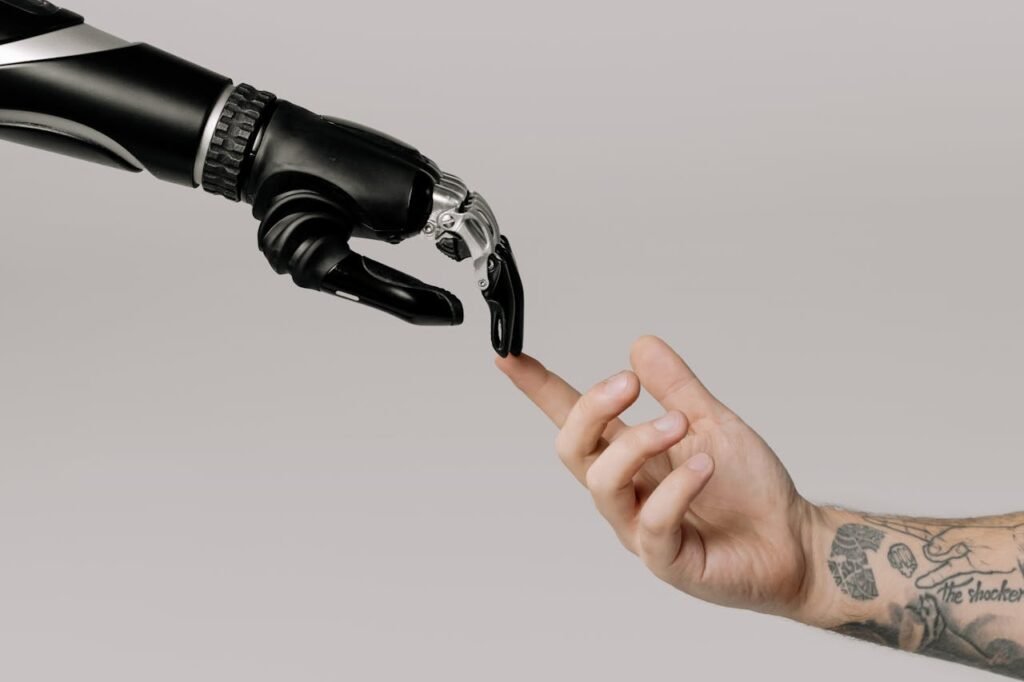
The Future of AI in Marketing
The marketing world is changing fast with the rise of artificial intelligence (AI)21. AI is set to transform marketing in big ways21. It’s an exciting time as we watch these changes unfold21.
Today, marketing is moving towards personalized experiences21. People want unique, tailor-made interactions. This trend is growing with technology’s impact21. Thanks to AI, marketers can now personalize on a large scale21. AI’s role in marketing is predicted to be worth over $107.5 billion by 202822.
AI is also improving areas like creating content, engaging with customers, and predictive analysis2123. By 2024, 30% of all business content will be made by AI22. Features such as chatbots, personalized emails, and lead prioritization will grow more common23.
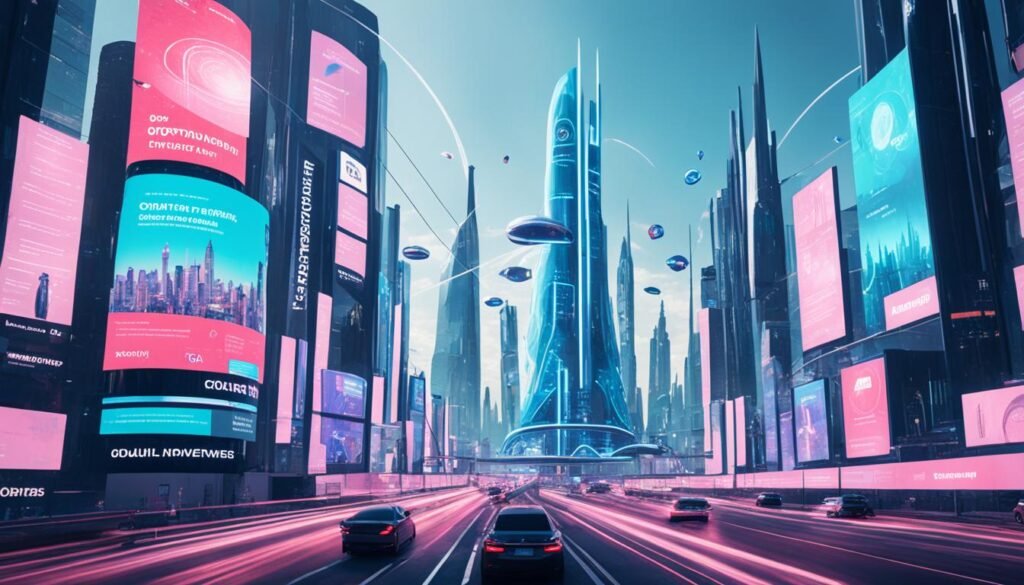
To stay relevant, marketers must learn about AI and changing consumer trends21. By using AI properly, businesses can stand out by offering personal, valuable experiences21. They should be careful about the ethical use of AI, though. This includes doing AI audits and talking to AI ethics experts23.
The future of marketing with AI is full of promise21. Marketers who welcome AI and adjust their strategies will succeed in the digital world2223.
Conclusion
AI is now a big deal in marketing, bringing new ideas and changing old methods24. It’s changing how we do many things, like making content, personalizing, and improving marketing plans3. For marketers to keep up, understanding and using AI tools is key25.
Using AI can make us better than our rivals, boost marketing, and make businesses grow25. The road ahead for marketing is with AI for sure. People who use AI in smart ways will win in the fast-changing digital world3.
AI won’t fully replace people in marketing teams, but it will help us work better24. Marketers will still need to lead, check quality, and protect brands. AI will help do some tasks quicker25. By loving AI’s power, we can be more creative, make things more personal, and do better, for our businesses and clients.




